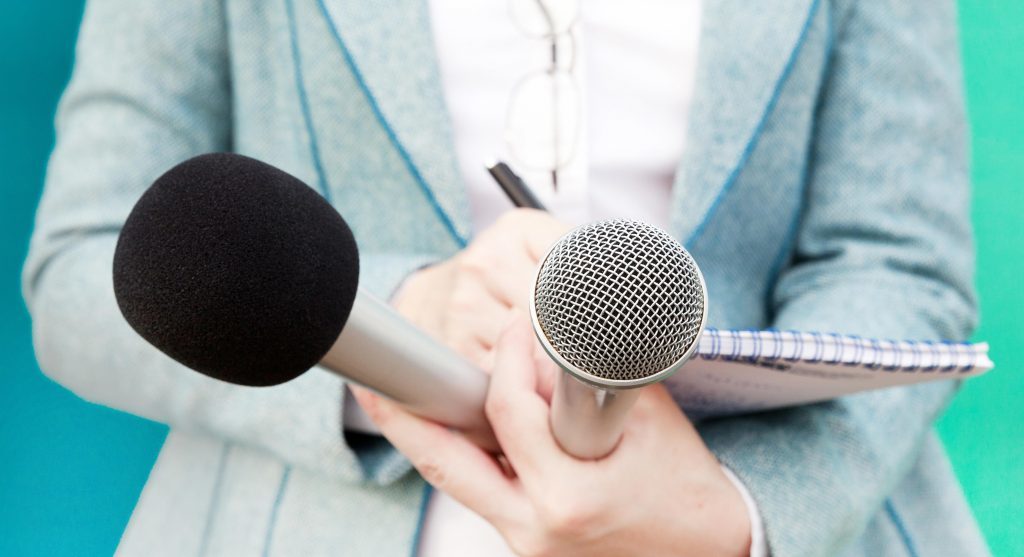 Debbie Herbst explores the impact of both off and online media channels.
Debbie Herbst explores the impact of both off and online media channels.
At the DDU, we frequently assist members who have been contacted by the media for comment about their treatment of patients. Sometimes, a dentist can even be ‘doorstepped’ by reporters or photographed following a matter that is investigated in a public forum, such as a court appearance or GDC hearing.
The duty of confidentiality
A dentist’s duty of confidentiality usually makes it difficult to respond to these enquiries in detail. While patients, and sometimes their legal advisers, are able to make detailed allegations in the press, dentists are constrained in their ability to respond by both a legal duty of confidentiality and an ethical duty laid down by the GDC. These duties mean that most of the time dentists cannot comment on the details of a case, even if the patient has put the information in the public domain.
Although journalists have a duty to seek both sides of the story, because dentists are often unable to respond, the resulting news story can be very one-sided. This can be both distressing and frustrating if you are the dentist involved, and it is important to have some techniques available to handle media enquiries while protecting confidentiality and presenting yourself in a professional manner.
Planning a response
If you are contacted by a journalist, it is important to remain calm and listen to their request. Then, find out who they are and which paper or media organisation they work for, and offer to call back after considering the request. The DDU would advise you to then immediately contact your dental defence organisation for advice and assistance in responding. Given a journalist is unlikely to go away if you ignore them, and will usually be on a tight deadline to produce a story, this advice may be simply to call back to explain that you cannot comment because of your duty of confidentiality.
It is important to remember that journalists are always ‘on the record’, which means they can record or write everything you or your colleagues say for their story. Consequently, beware that you or your colleagues do not make any off-the-cuff remarks, or provide any details that could breach patient confidentiality. This extends to confirming or denying whether someone is a patient of the practice.
If a photographer or camera crew attempt to photograph or film you, it is advisable not to cover your face or hide, as once they have obtained their desired image, they will usually leave you alone.
If a journalist attends the practice, it is important to seek to ensure that the access and confidentiality of patients attending the practice at the time, is protected.
Dealing with social media
Social media channels such as Twitter and Facebook have grown significantly in the last decade, with an increasing number of people choosing to use online channels to stay in touch with friends and family. Professionally, many dentists have embraced social media and it is true that social media can have a positive impact on dentistry, for example, by helping dentists to network more effectively and giving patients access to more healthcare information. But there are risks too, particularly when it comes to patient confidentiality.
Your duty of confidentiality applies as much online as it does offline and so you should not share anything about a patient that could identify them. Sometimes things that do not immediately appear to make a patient identifiable, can in fact reveal their identity to someone who knows them. The GDC may consider such posts to be undermining public confidence in the profession and this could have serious consequences for any dental professional.
It is important to remember that often highly personal information is accessible via social media channels for others to access and view. You may believe that your social media profiles are highly secure but people have been caught out by security settings that have changed or require updates. With this in mind, it is important to regularly check security for each of your profiles and make sure you aren’t sharing more than you want to.
Dealing with negative feedback on social media
Patients are increasingly using social media and online rating sites as a tool to provide feedback about their dental care, which may include negative comments or complaints. Some of this feedback may seem unjustified, misleading and on occasion, may be offensive or abusive.
The DDU recognises how distressing reading such feedback can be, and would advise colleagues to contact their defence organisation for advice before considering how to respond. Remember, it is important to respond positively and professionally to the post in a manner that does not breach patient confidentiality.
It is important that colleagues seek to balance an occasional negative comment against positive feedback received. A helpful response, acknowledging a patient’s concerns, and inviting the patient to contact the practice, so these may be addressed, presents a positive opportunity for the practice to demonstrate its professional approach to patient satisfaction.
For more information visit www.theddu.com.


